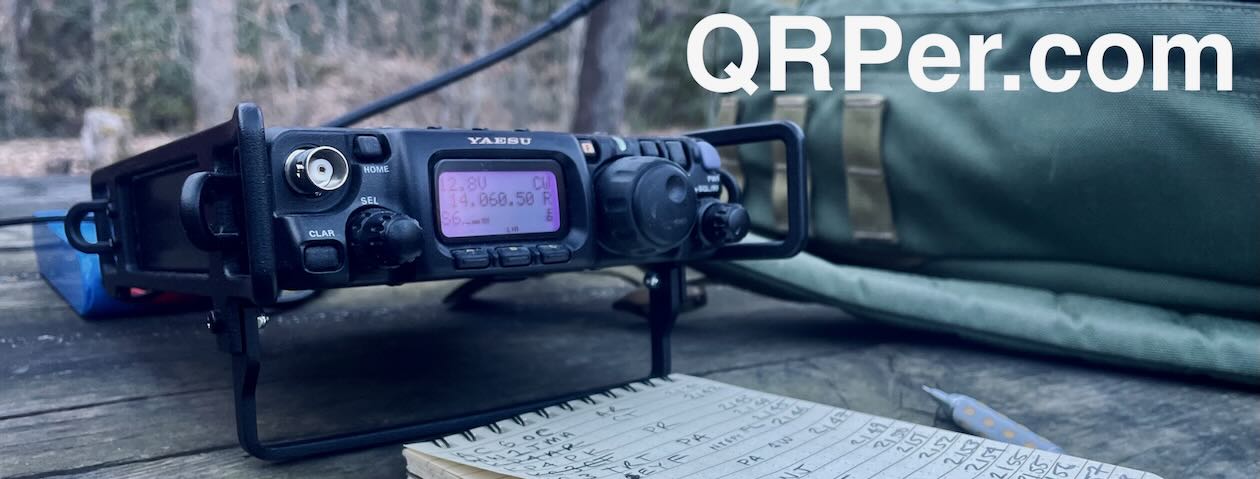I love it when my good friend, Frank (K4FMH), explores amateur radio topics through his academic lens.
Frank recently posted an article about living languages and how that could even apply to our amateur radio/QRP world. It’s a fun read and possibly worthy of a peer-reviewed journal (if they allowed humor)! Thank you for sharing, Frank!
Check out “A Living Language? Or Eu tu, Brute?” on Frank’s website.


Thomas – Ha! Thank you for sharing Frank’s crypto-linguistic tour de force! Am I wrong to see irony in using gallons of metaphoric digital ink to argue about the proper syntax for an abbreviation? I don’t believe any telegrapher would have wasted the line time…
It is always worth a good laugh at how seriously we take ourselves!
Best 72s, one to each of you, de Brian – K3ES
thank God they didn’t discuss the propriety of “88”! what a can of worms that would be!
I’m firmly in the “73” camp – not plural, not possessive. I have erred in my ways earlier in my ham life, but I’ve since repented.
Now, “HAM” is a very egregious sin to me, and irritates me greatly. It’s not an acronym! (No matter what some may claim.) Ham was a derogatory term given to early, non-professional radio experimenters.
If Hiram Percy Maxim did it, then there really isn’t much more to say, is there?
I heartily endorse Frank’s final conclusion.
I really like the idea of keeping CW, and ham-speak generally, a living language rather than a dead one.
Thanks for the fun and thought-provoking post, Thomas!
I like to send 73 and 72 when I am QRP.
Thanks for link to the article – very interesting.
’73’ is a sound we process on the air that means something.
{ } …it expands from it’s abbreviation to mean something and we know to listen for it. Other things, whether they’re pro-signs or abbreviations do the same thing and they mean something while we’re on the air whether that be:
{ <— —> } or { }, etc. It’s a lot quicker to say than “hang on, my wife is asking me a question about dinner” or even “please wait”.
It’s all part of the “code” and the workarounds to make it effective. Once you write “73” on your QSL card, or email, or end of your blog post, you’re using lingo your targeted audience understands. While the type casting feels automatic to us as hams, they don’t actually translate to text perfectly and that’s ok. …If I’m making sense. We wouldn’t normally use them if we were writing a letter or talking to someone on the phone unless we know the other person is familiar with them and at that point, it’s being done consciously.
It’s an interesting read though. I rarely think to say 72 in a QSO but I do appreciate hearing it. I think it’s easier for an op to just say ’72’ at the end than ‘CQ QRP CQ QRP de ‘ or mention QRP. That’s cool but conditions may not be patient enough for you to send all that out.
Blah my examples got “coded” out.
| 73 | expands.
The other examples I tried to throw out there were:
AS
and
GE OM.
Makes sense I tried to encode my comments about code and the “code” used on the webpage took an entirely different meaning to it as well, that was accidentally my point.
I enjoyed reading Frank, K4FMH’s lengthy linguistic and sociological exploration a great deal! I’m an Emeritus from a different field, so used to reading complex written thought forms.
A key point, that Q codes and numerical codes were never intended for written or spoken use. There are no rules for other than telegraphic use.
Morse Code is thankfully a living language!
I am gratified
“72” (ain’t) no problem! Only a tightly wound, code grammar purest, can ruin the fun… Which makes me all the more eager to use it. Every code evolves with its use.
Copy this: “7H3 M345UR3 OF 1N73LL163NC3 15 7H3 481L17Y 70 CH4N63” ~ 4L83R7 31N5731N
72 de W7UDT dit dit